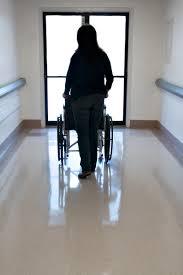Discharge from the Hospital – A Critical Juncture for Medication Errors
by
A Johns Hopkins Medical School study recently determined that the 3rd leading cause of death in the U.S. is medical errors. That is stunning news that leaves little doubt about the accuracy or authenticity of the data as it was accumulated and reported by physicians.
Hospital Discharge
When you break down the types of errors that are actually killing patients, the top three are misdiagnosis, preventable infections, and medication errors. A lot of the medication errors occur at home, but the chain of events that lead to them begins at the hospital.
 If you’ve been discharged from a hospital you know that it’s usually a case of hurry up and wait. Then hurry up again. Nurses scramble about, getting your orders and instructions together as they gather a pile of new prescriptions for you to drop off at the local pharmacy on the way home.
If you’ve been discharged from a hospital you know that it’s usually a case of hurry up and wait. Then hurry up again. Nurses scramble about, getting your orders and instructions together as they gather a pile of new prescriptions for you to drop off at the local pharmacy on the way home.
Discharge Medication Errors
Recent studies show that as many as half the patients have medication errors when they leave the hospital.
So what’s the answer? First, slow down. Ask questions, and then write down the answers. Most pharmacies have a small area for consultations but they also have drive-thru windows for people in a hurry. Don’t be in a hurry. Ask your doctors, your nurses, and your pharmacist if you are taking everything according to directions and tell them if you feel something is not right. Your body talks to you, so pay attention.
Here are some steps that might cut down on medication errors:
• Have someone bring to the hospital a list of your medications that is accurate and up to date.
• Have a partner, family member, or caregiver with you when you are being given your discharge instructions.
• Before leaving the hospital, make sure you understand how the medication regimen is different than your pre-hospitalization medications and why the changes are being made.
• Ask what kinds of problems you need to watch for once you get home, and report new symptoms to your doctor immediately.
• Use a pillbox or chart to help you remember to take your medications.
Get Help
MalpracticeAttorneys.com is the nation’s leading provider of malpractice news and information to help victims find help. Our service is free to all victims of malpractice.


